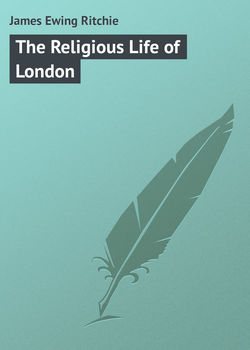Читать книгу The Religious Life of London - James Ewing Ritchie - Страница 1
INTRODUCTION
ОглавлениеMan is undoubtedly a religious animal. In England at any rate the remark holds good. No one who ignores the religious element in our history can rightly understand what England was, or how she came to be what she is. The fuller is our knowledge, the wider our field of investigation, the more minute our inquiry, the stronger must be the conviction in all minds that religion has been for good or bad the great moving power, and, in spite of the teachings of Secularism or of Positivism, it is clear that as much as ever the questions which are daily and hourly coming to the front have in them more or less of a religious element. It is not often foreigners perceive this. Take Louis Blanc as an illustration. As much as any foreigner he has mastered our habits and ways – all that we call our inner life; yet, to him, the English pulpit is a piece of wood – nothing more. According to him, the oracles are dumb, the sacred fire has ceased to burn, the veil of the temple is rent in twain; church attendance, he tells us, in England, besides custom, has little to recommend it. There is beauty in desolation – in life changing into death —
“Before Decay’s effacing fingers
Have swept the lines where beauty lingers;”
but not even of this beauty can the Church of England boast. Dr. Döllinger – a more thoughtful, a more learned, a more laborious writer – is not more flattering. The Church of England, he tells us, is “the Church only of a fragment of the nation,” of “the rich, cultivated, and fashionable classes.” It teaches “the religion of deportment, of gentility, of clerical reserve.” “In its stiff and narrow organization, and all want of pastoral elasticity, it feels itself powerless against the masses.” The patronage is mostly in the hands of the nobility and gentry, who regard it as a means of provision for their younger sons, sons-in-law, and cousins. Our latest critic, M. Esquiros, writes in a more favourable strain, yet even he confesses how the city operative shuns what he deems the Church of Mammon, and draws a picture of the English clergyman, by no means suggestive of zeal in the Master’s service or readiness to bear His yoke. Dissent foreigners generally ignore, yet Dissent is as active, as energetic as the State Church, and may claim that it has practically realized the question of our time – the Free Church in the Free State. In thus attempting to describe the Religious Life of London, I touch on a question of which I may briefly say that it concerns the welfare of the community at large.
Ivy Cottage, Ballard’s Lane, Finchley,
April 4th, 1870.
